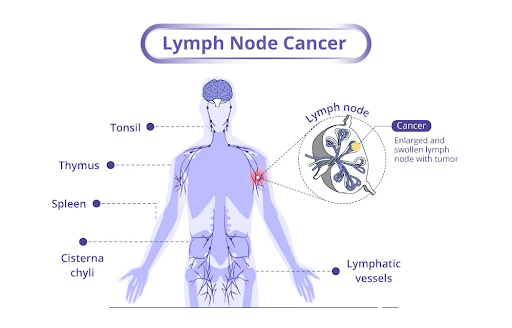Advanced Lymphoma Treatment Techniques Changing Patient Outcomes

Lymphoma care has evolved rapidly over the past decade. Treatments that once relied only on chemotherapy have now expanded into targeted therapies, immunotherapy, advanced diagnostics, and personalized treatment plans. These new techniques not only improve survival rates but also reduce side effects, giving patients a better quality of life during recovery.
Understanding these new methods helps patients and families make informed decisions and feel more confident throughout the treatment journey.
1. Targeted Therapy: Treating Cancer With Precision
One of the biggest advancements in lymphoma care is targeted therapy.
Instead of attacking all fast-growing cells like traditional chemotherapy, targeted drugs focus only on cancer-specific markers. This leads to:
- Fewer side effects
- More effective results
- Faster improvement for many patients
Drugs such as BTK inhibitors and monoclonal antibodies have become first-line treatments for several lymphoma types.
2. Immunotherapy: Boosting the Body’s Own Defense System
Immunotherapy is reshaping how doctors treat lymphoma. These treatments help the patient’s immune system recognize and destroy cancer cells more effectively.
Common forms include:
- CAR T-cell therapy
- Checkpoint inhibitors
- Monoclonal antibodies
CAR T-cell therapy, especially, has shown remarkable success in cases where other treatments haven’t worked. Many patients have seen long-lasting remission thanks to this approach.
3. Personalized & Precision Medicine
Every patient responds differently to lymphoma therapy. Today, doctors use advanced diagnostic tools, genetic testing, and molecular profiling to understand the tumor’s behavior.
This helps create a personalized treatment plan, which may include:
- Tailored drug combinations
- Optimized radiation doses
- Fewer unnecessary side effects
Such customization increases the chances of treatment success.
4. Improved Radiation Therapy Techniques
Modern radiation therapy machines now deliver stronger cancer-fighting doses with ultra-high accuracy, reducing harm to healthy tissues.
Some benefits include:
- Better control of localized lymphoma
- Shorter treatment cycles
- Reduced skin and organ damage
Techniques like IMRT and image-guided radiation have become standard in many hospitals worldwide.
5. Stem Cell Transplant Advancements
Stem cell transplantation is still a critical option for relapsed or aggressive lymphoma.
Advancements include safer transplant procedures, improved donor matching, and reduced recovery time.
These upgrades have significantly increased success rates, especially for younger and middle-aged patients.
6. Accessibility of Advanced Treatments
With better infrastructure, global medical travel, and experienced specialists, more patients can now access these advanced lymphoma treatments. Many people also explore care options abroad, especially when looking for expert oncology centers. In this context, patients often compare factors like medical team expertise, technology used, and Lymphoma treatment cost in India, which is known to be more affordable in many cases.
Conclusion
Modern lymphoma treatment is no longer limited to chemotherapy alone. Targeted therapies, immunotherapy, precision diagnostics, and advanced radiation techniques have transformed patient outcomes worldwide. These innovations provide higher survival rates, fewer side effects, and a more hopeful journey for anyone facing lymphoma.
FAQs
1. What are the latest advancements in lymphoma treatment?
Recent advancements include targeted therapy, immunotherapy like CAR T-cell treatment, improved radiation techniques, precision medicine, and safer stem cell transplants. These methods provide better outcomes with fewer side effects.
2. Is immunotherapy better than chemotherapy for lymphoma?
Not always, but for many patients, immunotherapy can be more effective and less harsh. It helps the immune system directly attack cancer cells and is often used when chemotherapy alone is not enough.
3. How does targeted therapy work?
Targeted therapy focuses on specific proteins or genes that cancer cells use to grow. This allows doctors to treat lymphoma with more accuracy and fewer complications compared to traditional chemotherapy.
4. Can lymphoma be completely cured?
Yes, many types of lymphoma — especially Hodgkin lymphoma — have high cure rates. Early diagnosis, proper treatment planning, and advanced therapies significantly improve long-term survival.
5. What is CAR T-cell therapy and who is it for?
CAR T-cell therapy is an advanced immunotherapy where a patient’s own T-cells are modified to attack lymphoma cells. It is usually recommended for people who haven’t responded to other treatments.







